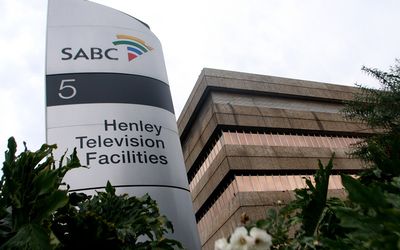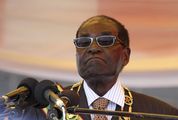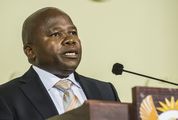THE state would be able to implement a stable corporate governance model with the controversial Broadcasting Amendment Bill, is Communications Minister Faith Muthambi’s defence of the bill.
Ms Muthambi quietly tabled the bill in Parliament last week, sparking criticism.
Detractors say the bill will render the South African Broadcasting Corporation (SABC) a toothless government mouthpiece and reverse postapartheid gains that made the SABC a vibrant entity.
But the minister believed the model would ensure that the SABC, which has been riddled by corporate governance issues, was stable and sustainable in the long term, Ms Muthambi’s spokesman, Mish Molakeng, said on Wednesday.
"It is (an) incorrect interpretation to say the SABC will become a state broadcaster," he said. "The proposed amendment … seeks to address issues relating to selection … of board members, (as well as) the size and tenure of future boards."
If passed into law, the bill would remove Parliament’s role in the selection of nonexecutive board members.
Portfolio committee on communications chairwoman Joyce Moloi-Moropa said the committee would interrogate the bill when Parliament reconvened next year.
Democratic Alliance spokeswoman on communications Phumzile van Damme said: "Given the gravity of this bill, the committee must open … (it) up for public comment."
Economic Freedom Fighters spokesman Mbuyiseni Ndlozi, a member of the committee, said the party rejected the bill and it would challenge it up to the highest court.
Media Monitoring Africa director William Bird said civil society groups would make submissions to oppose the bill.
"It is a blatant attempt to undermine the independence of the SABC," said Mr Bird.

SABC television studios in Auckland Park. . Picture: KEVIN SUTHERLAND
THE state would be able to implement a stable corporate governance model with the controversial Broadcasting Amendment Bill, is Communications Minister Faith Muthambi’s defence of the bill.
Ms Muthambi quietly tabled the bill in Parliament last week, sparking criticism.
Detractors say the bill will render the South African Broadcasting Corporation (SABC) a toothless government mouthpiece and reverse postapartheid gains that made the SABC a vibrant entity.
But the minister believed the model would ensure that the SABC, which has been riddled by corporate governance issues, was stable and sustainable in the long term, Ms Muthambi’s spokesman, Mish Molakeng, said on Wednesday.
"It is (an) incorrect interpretation to say the SABC will become a state broadcaster," he said. "The proposed amendment … seeks to address issues relating to selection … of board members, (as well as) the size and tenure of future boards."
If passed into law, the bill would remove Parliament’s role in the selection of nonexecutive board members.
Portfolio committee on communications chairwoman Joyce Moloi-Moropa said the committee would interrogate the bill when Parliament reconvened next year.
Democratic Alliance spokeswoman on communications Phumzile van Damme said: "Given the gravity of this bill, the committee must open … (it) up for public comment."
Economic Freedom Fighters spokesman Mbuyiseni Ndlozi, a member of the committee, said the party rejected the bill and it would challenge it up to the highest court.
Media Monitoring Africa director William Bird said civil society groups would make submissions to oppose the bill.
"It is a blatant attempt to undermine the independence of the SABC," said Mr Bird.



















Change: -1.03%
Change: -0.80%
Change: -5.02%
Change: -0.11%
Change: 2.54%
Data supplied by Profile Data
Change: -0.48%
Change: 0.47%
Change: -1.03%
Change: 0.00%
Change: 0.23%
Data supplied by Profile Data
Change: 2.01%
Change: 1.29%
Change: 1.43%
Change: 1.10%
Change: 0.91%
Data supplied by Profile Data
Change: -0.32%
Change: -0.04%
Change: -0.35%
Change: 0.54%
Change: 0.10%
Data supplied by Profile Data